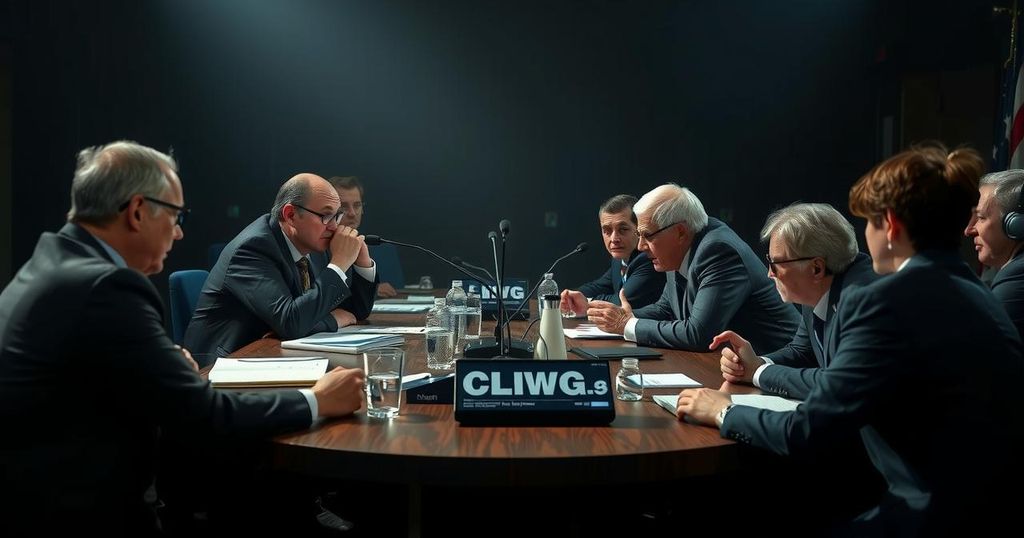The climate talks in Azerbaijan culminated in a contentious agreement on climate finance, with significant criticism over the pledged amount. The deal, valued at $300 billion annually for poorer nations, was deemed insufficient by several countries. Azerbaijan’s COP president faced backlash immediately after the announcement, highlighting tensions in the negotiations amid rising global temperatures.
During the recent climate negotiations held in Azerbaijan, a contentious agreement on climate finance was reached amidst complaints from various nations. Following protracted discussions lasting more than two weeks, Azerbaijan’s COP president Mukhtar Babayev announced the adoption of the deal around 3:00 am on Sunday. The agreement included a pledge for $300 billion annually from wealthier countries to assist those most affected by climate change; however, this figure provoked sharp criticism from representatives of several nations, including India, Cuba, and Switzerland.
The negotiations took place in a unique environment at Azerbaijan’s Olympic Stadium, set up as a sprawling conference hub. Despite completing the deal, tensions were palpable as countries criticized the amount allocated for climate assistance, which they deemed insufficient. As delegates expressed their frustration, Babayev remained staunch, acknowledging the concerns while also reflecting on the challenges faced during the talks.
The negotiations unfolded against a backdrop of heightened global temperatures and persistent concerns regarding the effectiveness of climate action. Some representatives lamented the ineffectiveness of prior negotiations and the frequent dominance of wealthier nations in decision-making processes. The host country, Azerbaijan, also received scrutiny for its internal human rights record, with its leader opting for a confrontational tone at the outset.
The closing moments of COP29 were characterized by a mix of relief and anger, with some observers noting the disparity between the need for urgent action against climate change and the paltry financial figures addressed during the discussions. The conference concluded with both skepticism and determination from various stakeholders, highlighting the ongoing complexities of international climate negotiations.
The recent climate negotiations in Azerbaijan highlighted the challenges of global diplomacy as negotiators endeavored to strike a balance between addressing the urgent need for climate action and the political realities of international agreements. With global temperatures on the rise, the stakes of these discussions were exceedingly high, necessitating substantial financial commitments from wealthier nations to those disproportionately affected by climate change. However, the adequacy of proposed financial support has remained a contentious issue throughout climate talks, reflecting broader tensions between developed and developing nations.
The outcome of the climate negotiations in Azerbaijan has raised significant concerns regarding the commitment of wealthy nations to support their poorer counterparts in combating climate change. The criticisms from various nations underscore the ongoing struggle for equitable climate finance and the urgent need for substantial action. Moving forward, the international community must address the discontent expressed by many nations to foster greater cooperation and trust in future negotiations.
Original Source: www.france24.com






